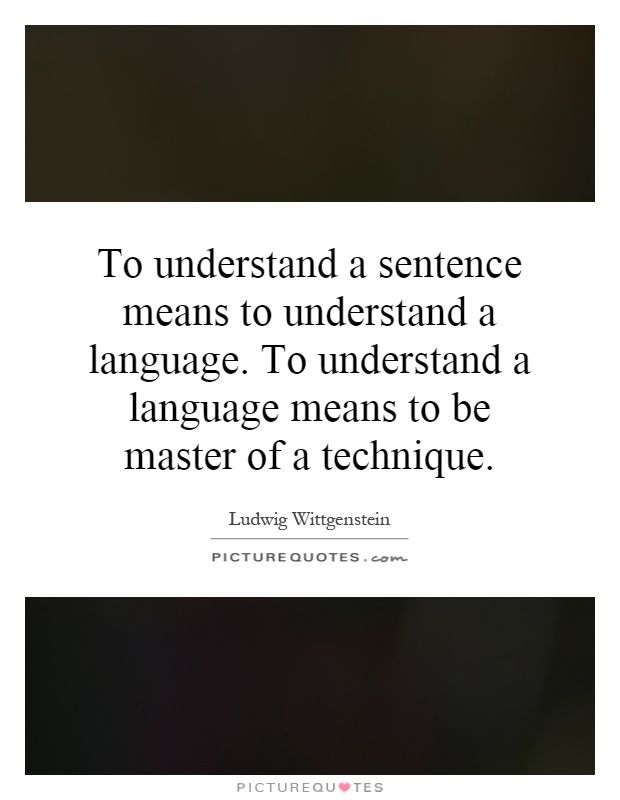To understand a sentence means to understand a language. To understand a language means to be master of a technique

To understand a sentence means to understand a language. To understand a language means to be master of a technique
Ludwig Wittgenstein, an Austrian-British philosopher, is known for his work in the philosophy of language and the philosophy of mind. His ideas on language and understanding have had a profound impact on the field of philosophy and continue to be studied and debated to this day. One of Wittgenstein's key insights is the idea that to understand a sentence means to understand a language, and to understand a language means to be master of a technique.Wittgenstein believed that language is not just a tool for communication, but also a system of rules and conventions that govern how we use words and sentences. In his famous work "Philosophical Investigations," he argues that the meaning of a word or sentence is not fixed or determined by some underlying essence, but is instead determined by its use in a particular context. This idea is often referred to as the "use theory of meaning."
According to Wittgenstein, to understand a sentence means to grasp its meaning in the context of a particular language game or form of life. Language games are the various ways in which language is used in different social and cultural contexts, and understanding a language game involves not just knowing the rules of grammar and syntax, but also understanding the social and cultural practices that give meaning to words and sentences.
Wittgenstein also believed that to understand a language means to be master of a technique. By this, he meant that language is not just a passive tool for representing the world, but an active practice that involves a mastery of certain skills and abilities. To be master of a technique means to be able to use language effectively and appropriately in a given context, and to be able to adapt and respond to new situations and challenges.












 Friendship Quotes
Friendship Quotes Love Quotes
Love Quotes Life Quotes
Life Quotes Funny Quotes
Funny Quotes Motivational Quotes
Motivational Quotes Inspirational Quotes
Inspirational Quotes